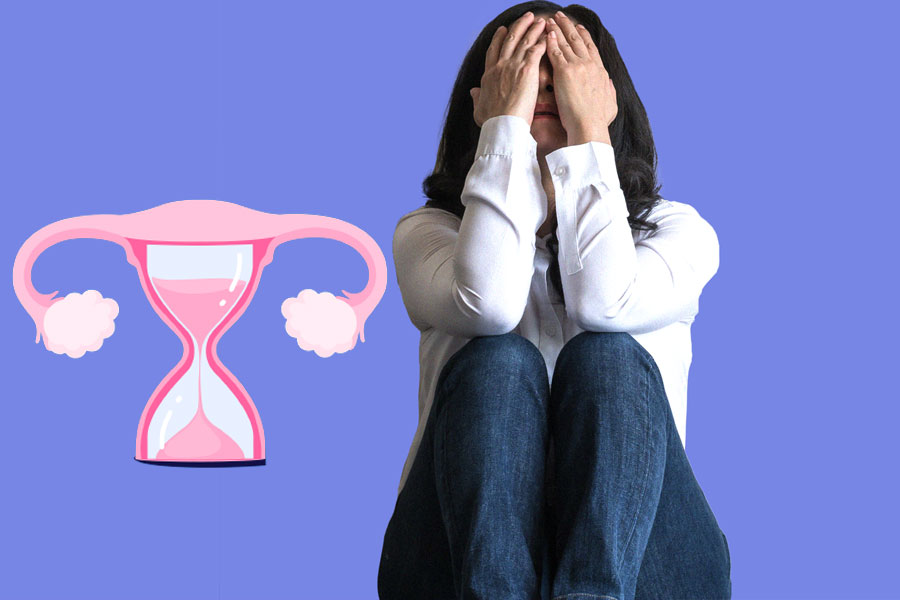Mensuration or periods are different for every woman. For some girls, the experience of their first is delightful, whereas for others it’s more about asking when will it end (menopause).
What most females don’t realize at a young age is that the transition to menopause may seem delightful, but actually may be the complete opposite.
Menopause is the duration of 12 months after the end of a woman’s mensuration cycle. There are 3 stages, Perimenopause (the time leading to it), menopause (itself) and Postmenopause.
Menopause & Its Toll on Mental Health
During perimenopause, a woman is likely to feel the body’s hormonal changes very evidently. From irregular cycles to hot flashes, vaginal dryness, and other symptoms, this phase can be very triggering. For some women, this phase can go on for years before they actually experience menopause. The only time menopause begins where there are 12 full months of no periods.
Common Symptoms:
- Irregular periods
- Change in flow
- Hot flashes
- Vaginal dryness
- Discomfort during sex.
- Frequent urination
- Sleep problems (insomnia).
- Mood swings
A complete year without periods starts menopause, as mentioned above. According to studies and research, the menopausal transition affects each woman uniquely and in various ways. The body begins to use energy differently, fat cells change, and women may gain weight more easily.
You may experience changes in your bone or heart health, your body shape and composition, or your physical function. Moreover, these changes can evidently start taking an unhealthy toll on a woman’s mental health.
Hot flashes are severely uncomfortable, they can go on for years. A rush of heat is experienced throughout the body, the neck and face along with surrounding areas become flustered. In some cases, red botched may appear on the arms, chest, and back, and can be followed by shivering.
The frequent urge to urinate can make a woman uncomfortable, and sometimes the situation may become embarrassing. Urine easily escapes during laughing and sneezing or exercise which makes many tasks that are needed to be performed difficult.
Similarly, when these issues start occurring, women find it difficult to fall asleep. Women tend to wake up early, wake at the slightest sound, may experience night sweats and may experience a lot of trouble falling back to sleep.
The dryness of the vagina and nearby areas can cause a lot of irritation. The frequent urge to itch keeps many people on edge, especially when the situation is out of control. If the woman is married or in a relationship, she will find intercourse painful and discomforting, overall, they start to lose appeal in sexual desires. For others, it’s a sigh of relief as the couple can be intimate and not worry about fertility.
Frequent mood changing also becomes a hassle to deal with, one moment you’re fine and the other you’re breaking down and crying your eyes out and you, yourself, don’t understand why. It is as if all emotions have been blended together and served in a glass.
Bodily changes are also very natural during the transition, however, women may be upset with these changes instead of being happy. The stress and hormonal changes can lead to weight gain, and cause muscle and joint pain, while some experience muscle thinning, and aches.
All of these factors combined to cause a lot of mental concerns for a woman. This is why it is important that you take care of yourself during these days. Consult with a doctor pre-hand so that you can be prepared, mentally and physically.
Read more about the topics, try to understand and explore the body, talk to your partner and explain to them that some days there will have to be there for you. Moreover, tell yourself that you will get through this with extra help (counselling) If needed.
We hope you have a happy and healthy life ahead.
Stay tuned to WOW360.
Rich N-3 Polyunsaturated Fatty Acids Diet May Help Prevent Breast Cancer: Report
